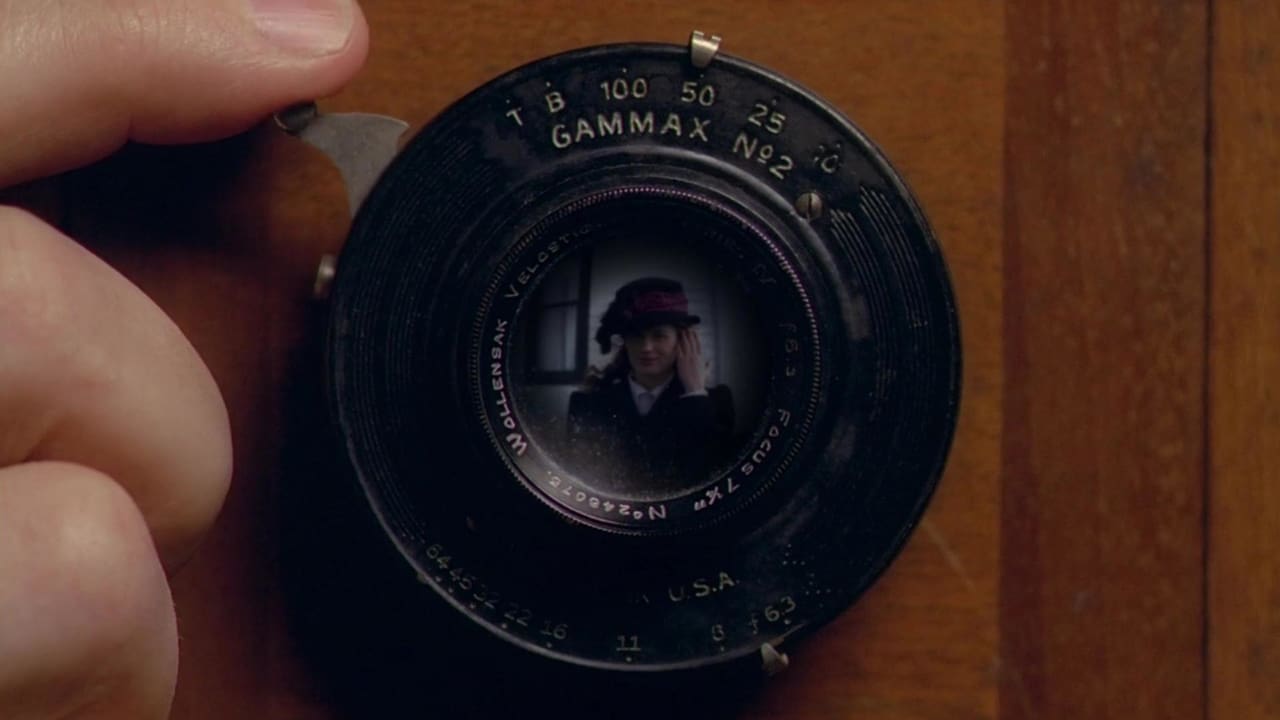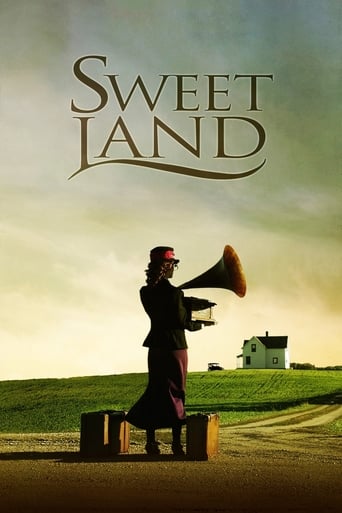Lovesusti
The Worst Film Ever
KnotStronger
This is a must-see and one of the best documentaries - and films - of this year.
Anoushka Slater
While it doesn't offer any answers, it both thrills and makes you think.
Kimball
Exactly the movie you think it is, but not the movie you want it to be.
rangeriderr
This film is most absorbing, but you have to be willing to watch a film that unfolds slowly. It is magnificently acted with two young actors -- Elizabeth Reaser and Tim Guinee as the leads. There is relatively little dialogue, and much of it is in German or Norwegian with no subtitles, which conveys to the audience the difficulty that they have communicating with each other.The two leads are heavily dependent upon the expressiveness of their eyes, which they do with great delicacy. The film is well-paced and beautifully photographed. The only difficulty I had was catching on that the action took place in three time periods, not just two. You had 1920 when Inge, a mail order bride comes to rural Minnesota. (The scenery looked authentic, and since some of the credits are for institutions in Montevideo, MN, a town to which I once traveled, I can understand the veracity of the setting.) The second time period, which is not so clear, is when Olaf, Inge's husband has passed away, and the third time period is more or less the present when Inge's grandson is faced with a decision of whether or not to sell the farm. There are some visual clues to separate the second and third time periods, but they are quite subtle.The second is probably around 1960, marked by the glasses frames that Inge, as an old woman is wearing; and the third, by a jacket that her great-granddaughter is wearing. Otherwise, the time differences are not totally clear, particularly at the beginning of the film, where you have flashbacks.The film struck me with its apparent accuracy. Twenty years ago, I knew an elderly Norwegian immigrant who had been the wife of a North Dakota farmer, and she had told me stories of farm life in the 1920s and 1930s. It required about 15 people to operate a steam threshing machine, and she told me about preparing lunch each day during the harvest season for 20 men; and about reading by candlelight at night; using an indoor pump at the sink; and seeking to keep warm during the brutal North Dakota winters. I visited the woman and her daughters and grand-daughter in her modern apartment which was a far cry from life during her youth. It blows me away to think about the change in this one woman's singular life from her youth to her later years -- greater changes than in any prior period in history. (In 1946, there were still more horse drawn tractors than mechanized ones in use in the U.S., and there wasn't much electricity in rural areas until the New Deal.)Although I may have missed some, I perceived no wrong notes in the film which added to the enjoyment of watching it. A most charming film from beginning to end.
Aristides-2
I give it a five instead of 3 because I didn't watch all of it; I couldn't bring myself to watch anymore of it. Odds and ends: 1. The two pre-title sequences were much too long. So much so that tedium began to set in. 'Teases' should be just that; a hook to whet your interest. I also found the two sequences slightly difficult to understand. 2. I understand this was a first time director so slack must be cut. However, camera placement was poor in a lot of the set- ups.....awkwardness. 3. Music was simplistic and therefore heavy handed. 4. The cars, rented from overprotective antique car buffs, were always so spotlessly clean. Isn't this 1920 farmland America? Actually, everything I saw in my foreshortened viewing was squeaky clean and over- scrubbed. 5. Since Olaf was Norwegian and believed he was 'sent' a Norwegian bride-to-be, why wouldn't he at least speak the language to her, however shy he was? 6. Alan Cumming's character should have been named, 'Nonny Sequitur'. 7. Finally, I think director Selim was channeling Norman Rockwell cause that's what the total effect was for me, a Norman Rockwell painting.
vitaleralphlouis
This independent film about a German-born mail-order-bride in rural Minnesota in 1920 is certainly not a Must-See but it could be a good alternative to a non-stop diet of stupid Super Hero movies and other current swill from the artistically bankrupt cocaine-sniffers in our movie industry.There are two kinds of men in the world. One kind notices a pretty and naked woman in his bathtub when he gets up in the morning. The other kind walks right by and literally sees nothing. The absolutely believable hero of this film is the second kind, a rural man frightened to death of his mail order bride because he has no experience, or instinct, on how to deal with (talk to) her. He's one of the gentle people depicted in this movie, a genuine solid American from fly-over country (as the liberals call it).It was wartime, and the mail-order bride wasn't from the Taliban (it was 1920) but she WAS from the country that America was engaged in war with, and Germans were killing American men in huge numbers. We are supposed to think this is "prejudice" but the resistance this woman encounters from these gentle people hardly amounts to anything greater than initial resistance and stand-offish-ness. Let me tell you about prejudice. Prejudice is the kind of hateful ranting the Democratic presidential nominee and his wife embraced for 23 years in their Sunday so-called church. Prejudice is burning down your neighbor's house. Prejudice ought not be confused with Freedom of Association. Prejudice does not occur in this movie.The idea that overcoming prejudice and ignorance are supposedly the selling points of this movie is downright annoying... and silly. Why not sell a movie on its merits?
Hollywood_Yoda
Upon watching the film and even after, it was quite different from anything I have seen about how the Germans were treated in the United States after the First World War. Watching the film, and seeing how the town minister acted upon learning the woman was from Germany, it seemed as though he promoted bigotry, and as a minister of the word of God, he really has no place doing so (one man's opinion), but I guess things happened like this no matter what. The reason I felt the way I did, which is in favor of the German woman, was because what real harm could she really possess? I mean, my family came from Germany before the turn of the last century, so I would assume that they could have had this bigotry happen to them, which makes me feel the way I do about the woman in the film. I believe if I had been alive during the time period portrayed in the film, I would have most likely been an outcast as well, for my beliefs could weigh me down. The Lord says we should accept people as they are, and I know I haven't done my best to suit such, but when two people love each other, as these two in the film came to do, doubt shouldn't be about.Even the world in which we live, there are cynics and there are lovers, the best of which are those that love. I know people from each side of the aisle, so to say, and they each have a great argument, but at the end of the day God teaches us to love unconditionally, which sometimes is hard to do and therefore, I know what the minister was going through. It's all a part of each of our lives that we have to outgrow. God willing, we can learn to love and accept without end.

